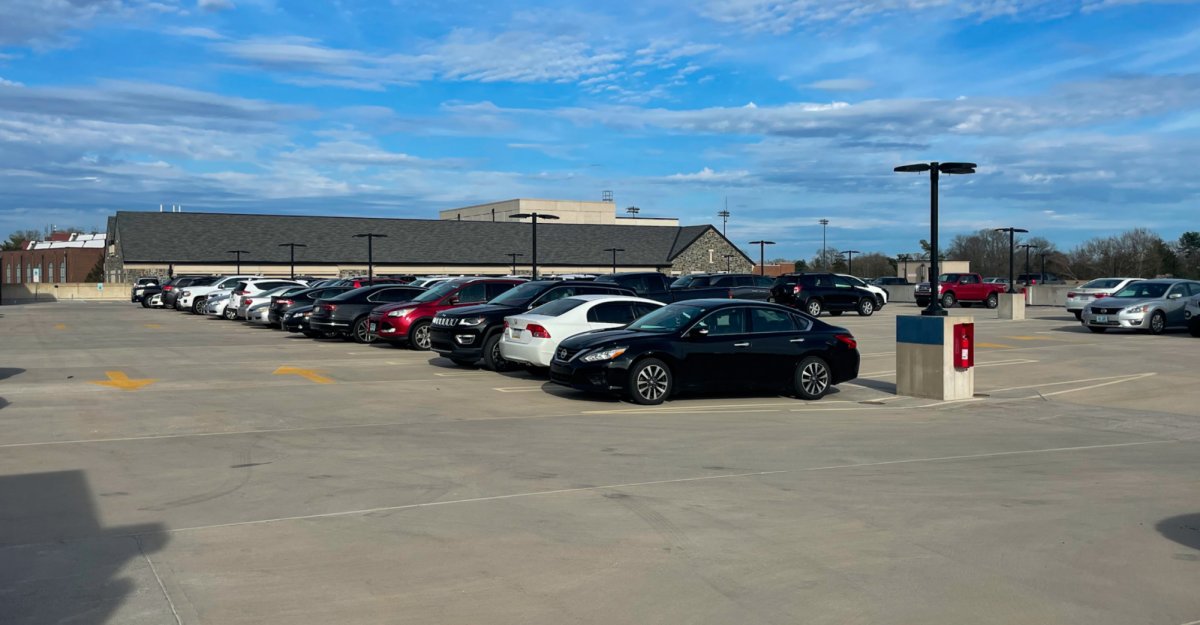In an email sent on Tuesday, April 2, the University outlined several school-wide updates. One of these announcements was the approval of Villanova’s Fiscal Year budget, which included a tuition increase of 4.75 percent.
With zero financial aid, the cost of tuition for a full-time undergraduate student is currently $66,838. After the recent revised statement, this figure jumps to more than $70,000. Villanova’s premium price tag is simply unfeasible for countless families and places unnecessary burden on existing students. Like any university, Villanova must contend with inflation, daily expenses and the ever-growing cost of living. However, increasing tuition by such a significant amount should not be the solution.
The national burden of student debt is already staggering. Per Census data, nearly 43 million Americans had outstanding federal loan debt in 2023. Placing even greater financial obligations onto Villanova students only perpetuates this crisis, especially at a private university. Villanova’s tuition is already exceptionally high, especially in comparison to national averages. With such an influx of existing revenue and alumni donations, the University’s decision to exacerbate this problem is disappointing.
Furthermore, skyrocketing debt levels have disastrous long-term implications. Primarily, they force life milestones – such as home ownership and having children – to be put on hold. The situation also heavily influences the post-graduate experience, particularly in terms of independence. Young adults may feel financially tethered to their parents or their loans, impeding their ability to start life by themselves. In short, this restriction of financial freedom will cause conflict long after students have left their undergraduate school.
“I want to go to graduate school after I leave Villanova,” freshman Lily Lincoln said. “The 4.75 percent increase may seem small, but for me and plenty of other students, it contributes to setting us up for a lifetime of loans.”
Increasing tuition also reduces the equality of opportunity for deserving students to attend prestigious institutions. High costs erect significant barriers of entry, forcing intelligent and qualified individuals to seek higher education elsewhere (if at all). College should be a pathway to upward social and economic mobility, not yet another hindrance for already disadvantaged communities.
It is important to note that according to its 2023 strategic plan, Rooted. Restless. Villanova is committed to its goal of meeting 100% of demonstrated financial undergraduate need by 2030. Yet the tuition increase takes the fiscal situations of existing students for granted. The process of revising or extending financial packages is long and burdensome. Despite the University’s goal, increasing tuition will be a catalyst of inevitable economic strain for many families.
Villanova students felt caught off-guard at how little attention was given to the matter. As aforementioned, the Fiscal Year 2025 budget was just one of several updates given in a mass email. It was sandwiched between news about the University’s M-1 parking lot and Mendel Medal, so there was a lack of due recognition for the topic.
“I consented to a certain tuition rate when I committed to Villanova,” freshman Allie Jones said. “I understand that it’s within Villanova’s discretion to alter [this rate], but I wish the decision was more transparent and less drastic.
To me, the University’s statement felt defensive. Rather than taking accountability or apologizing for the financial strain, Villanova merely attempted to justify its decision:
“Like most colleges and universities across the country, Villanova is heavily dependent on tuition revenue. Annual increases enable the University to continue providing an exceptional academic experience, comprehensive student support services as well as additional need-based financial assistance, while also ensuring Villanova’s continued financial stability.”
An individual email outlining where the extra revenue would be allocated would have been greatly appreciated. Furthermore, the University should have outlined why the increase was necessary. Was it the result of the Cabrini acquisition? Was it to strengthen the sinking basketball program? These questions remain unanswered despite their glaring relevancy.
Villanova is a prestigious university with countless opportunities for education, networking and student support. Yet, increasing tuition directly impacts students’ ability to afford and access higher education. Furthermore, the University’s lack of transparency weakened the ability for informed decision-making and preparation for students and their families. In the future, Villanova should respect its campus community by being honest and straightforward in its thought process.




